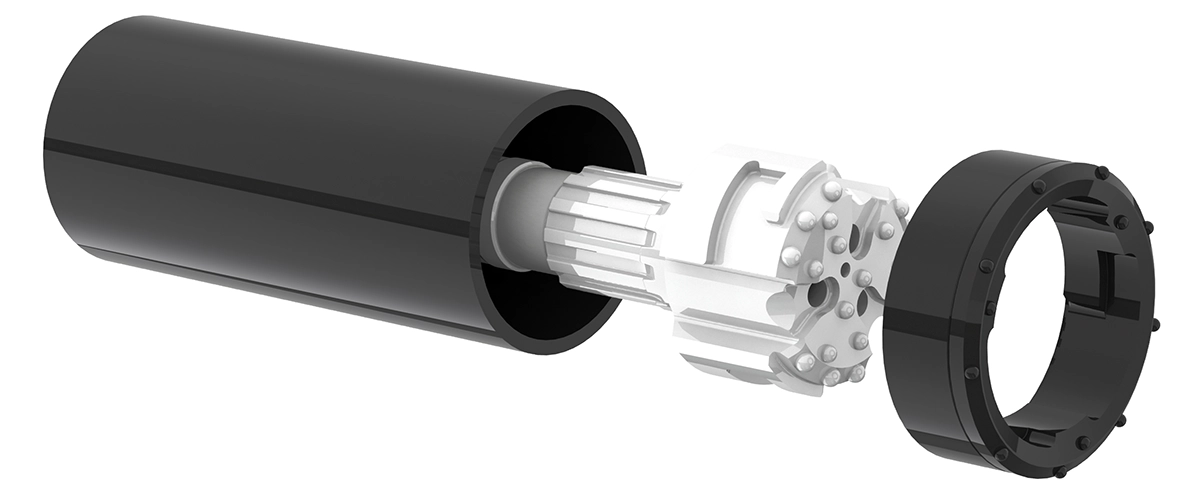Mikko Kuusilehto will take up the role of CEO at Robit in August 2025. With an impressive track record of leading industrial companies throughout the 21st century, he brings a wealth of experience to the position. How does Robit’s new leader view the future?
You’ve held leadership roles in several industrial companies. What brought you to Robit?
I’ve had the opportunity to work with companies that’ve been in business for decades, some for over a century. They’ve all been strong industrial players, and the common thread has been a robust culture and outstanding individuals who have made success possible in both good times and challenging ones.
Robit appealed to me because it’s a technically capable, international company with a clear role as a supplier to critical sectors. There’s also a healthy ambition here, a desire to grow and improve profitability. That’s a combination where I feel I can genuinely contribute.
At the heart of Robit is durable, high-performance technology and a focus on serving demanding industries. I’ve worked with similar challenges before. It felt like an opportunity to help shape the next chapter of growth for a company that has both a proven track record and a strong appetite for continued evolution.
What’s your impression of Robit’s company culture so far?
I’ve already had the chance to meet a large number of people across the organisation. My first impression has been overwhelmingly positive. There’s a strong sense of drive here, a wealth of expertise and a desire to solve problems for customers. You can see that in the committed approach people take to their work.
The international nature of the company adds richness, but it also underscores the importance of a shared culture and working methods. I believe great culture doesn’t happen by accident – it’s something we build together, deliberately.
Do you have any ideas for further developing that culture?
The key is to create a shared rhythm and clarity about what we’re trying to achieve and how we track progress. Clarity and rhythm free up time, energy and creativity. When people understand the goals and know where we’re headed, they’re empowered to make decisions and learn quickly. Data and teamwork play a big role.
Another focus area is communication, both internally and with customers. A strong culture includes the freedom to ask questions, share ideas, challenge the status quo and succeed together.
How would you describe your leadership philosophy?
I see leadership first and foremost as a responsibility to enable others to succeed. I aim to be present, listen actively and offer clear direction.
People need to know what we’re working toward and why we’re doing it. I value direct communication, trust and collaboration across teams. Ultimately, we’re measured by our results, so leadership also means being prepared to make decisions and take responsibility.
I want people to feel they have a clear direction, the ability to make an impact, and a sense that their contribution matters. Leadership is about striking a balance between listening and the courage to make decisions – both are necessary to move forward.
There’s a lot of turbulence in global politics and trade now. Does that affect a company like Robit and the way it’s managed?
Absolutely. We need to operate globally while understanding local conditions. Tariffs, logistics, exchange rates and geopolitical risks are part of daily life, and they can have a big impact.
From a leadership perspective, this means having options, being prepared to react, and being able to assess risks quickly. At the same time, you need long-term consistency – strategy can’t swing with every headline. That’s why we need to maintain a stable strategy while remaining flexible in execution.
How do you view Robit’s position and image in the global market?
Robit has a strong technical reputation, and customers value its expertise, flexibility and ability to deliver quality. The brand has a no-nonsense character that suits the environments where our products are used.
Robit is a respected name in the market. Still, I believe we have the potential to become an even stronger international presence, especially if we can consistently deliver a great customer experience and provide clear value to end-users.
Customers must see Robit as a daily partner, not just a supplier of products. That’s how you build differentiation and loyalty that lasts through the toughest market cycles.
Robit already has a strategy in place for the near future. Do you have personal goals you’d like to pursue within that framework?
The current strategy has many strengths, and it’s easy to commit to. What matters now is putting it into action.
I hope we can build Robit into a company that combines strong technical know-how with a sharp commercial edge and a culture where people can grow and succeed together. If we succeed in that, I believe customer and shareholder value will follow.
Everyone needs to have a place in the story and understand how their work contributes to the bigger picture. We also aim to improve the customer experience and explore new ways to grow, both in existing and new markets.
I believe the future doesn’t just happen to us – we shape it ourselves. Our direction is defined by the choices we make, the actions we take and how we work together.
